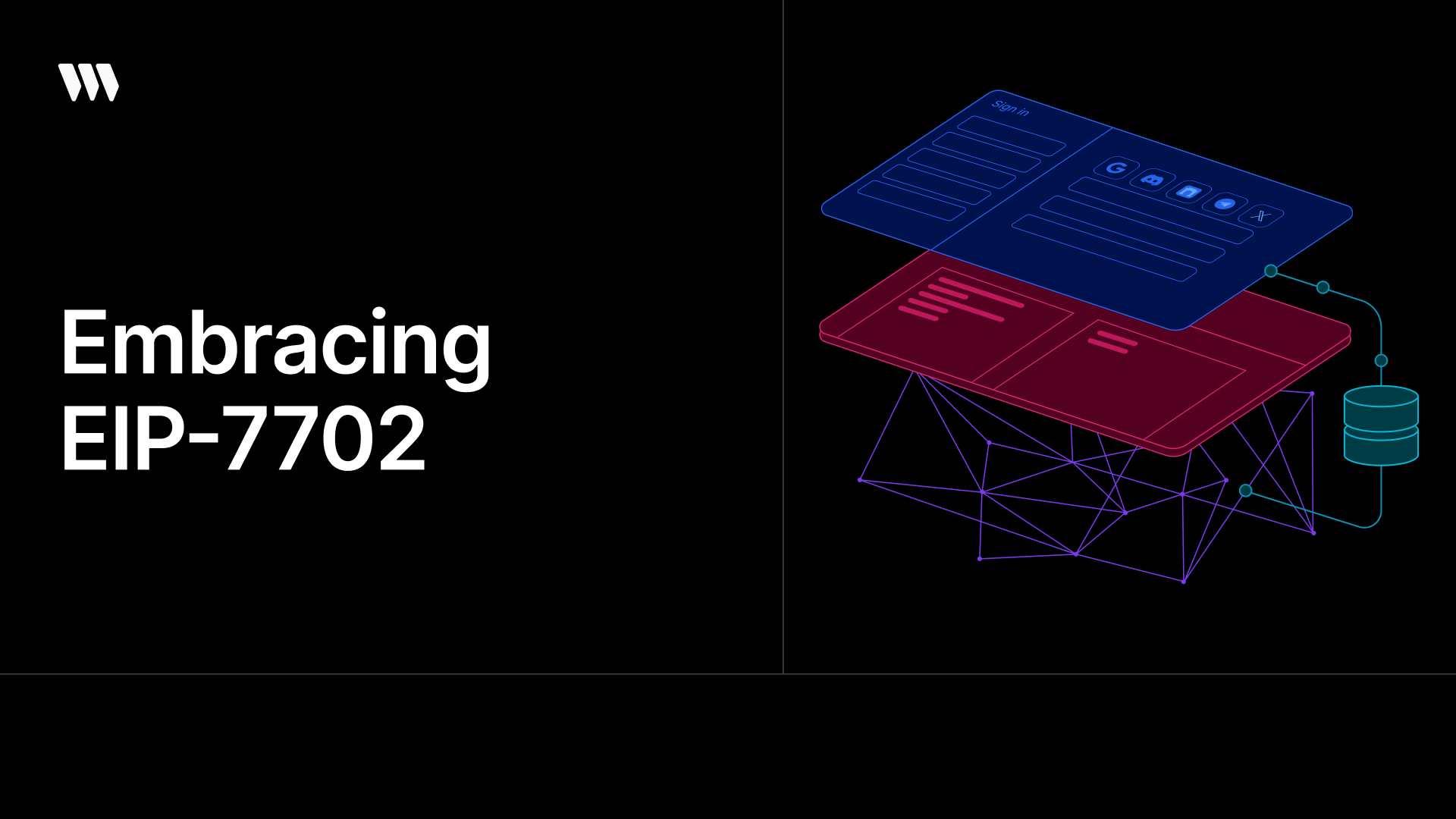Beyond AA: Why We're Going All-In on ERC-7702
Today, we're announcing that thirdweb is fully embracing ERC-7702, a new EIP that dramatically simplifies how account abstraction works.

Account abstraction is the backbone of modern web3 applications. By enabling smart contract wallets with programmable transaction logic, it has significantly improved the user experience for millions of users.
Until now, ERC-4337 has been the standard approach - but that's about to change. Today, we're announcing that thirdweb is fully embracing ERC-7702, a new EIP that dramatically simplifies how account abstraction works. This isn't just an incremental improvement - it's a fundamental shift that will make web3 applications faster, more accessible, and chain-agnostic.
The Problem with ERC-4337
ERC-4337, while revolutionary, introduced complexity to achieve account abstraction:
- Intricate infrastructure requirements: Bundlers, paymasters, and EntryPoint contracts create operational overhead
- Chain-specific deployment: Each chain needs EntryPoint contracts and compliant bundlers
- Performance bottlenecks: The architecture introduces latency and potential points of failure For developers, this meant navigating complex infrastructure instead of focusing on building great applications. For users, it meant slower transactions and inconsistent experiences across chains.
- Address fragmentation: Users need different wallet addresses across chains, creating confusion and poor UX
Why ERC-7702 Changes Everything
ERC-7702, part of the Pectra fork, takes a fundamentally different approach. Instead of creating an entirely new transaction flow with UserOperations, it extends existing EOA transactions with authorization capabilities. This deceptively simple change has profound implications:
- Any chain support: No EntryPoint contract deployment needed - if a chain adopts ERC-7702, it works immediately
- Dramatic speed improvements: Initial tests show 2-5x faster transaction processing
- Simplified infrastructure: No need for specialized bundlers or complex coordination The approach is beautifully straightforward - it adds a new transaction type that includes authorization data, which allows any account (EOA or contract) to authorize another account to act on its behalf.
Our Implementation: Session Keys Done Right
With ERC-7702, we're reimagining how session keys work. Our implementation will provide:
- Granular permissions: Authorize specific functions, tokens, or amounts
- Chain-agnostic deployment: One address across all EVM chains
- Execution fleet: Our infrastructure will handle the end-to-end flow for sponsored transactions This means developers can now create applications where users can pre-authorize specific actions, eliminating transaction signing for common interactions. Imagine gaming experiences where users authorize limited actions upfront, then enjoy seamless, gasless gameplay.
What This Means For Developers
If you're building on thirdweb today, here's what to expect:
- Seamless migration: Our SDK will handle the complexity of the transition
- Simplified session keys: Create programmatic logic without deep AA knowledge
- Universal chain support: Build once, deploy everywhere without modification
- Better performance: Faster transactions mean happier users Best of all, the mental model is far simpler. Instead of understanding entryPoints, bundlers, and paymasters, you only need to think about who can do what.
The Road Ahead
ERC-7702 is already live on Sepolia testnet, ahead of its anticipated schedule. This accelerated timeline has confirmed our belief that this is the future of account abstraction. We've already made significant progress on our implementation and are redirecting all of our account abstraction efforts toward ERC-7702. This includes:
- A minimal ERC-7702 account implementation with granular session keys
- A high-throughput execution fleet for signed transactions
- Automated fund management across all chains By going all-in on ERC-7702, we're positioning our framework to offer the best developer experience for building web3 applications. We expect to release our first preview of these capabilities within weeks.
Join Us in the Future of Account Abstraction
The principles of account abstraction aren't changing - enabling smart contract logic for accounts remains essential for web3 adoption. What's changing is how we implement it, moving from complexity to elegance. This is a pivotal moment for web3 infrastructure. By embracing ERC-7702, we're not just improving our framework - we're helping to establish a new standard that will make web3 more accessible and performant for everyone.
We can't wait to see what you'll build with it.

